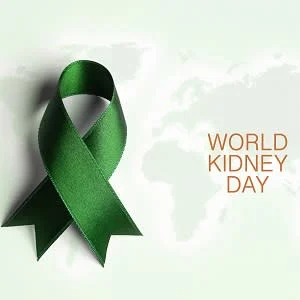On the 9th March, we celebrate World Kidney Day, a global campaign aimed at raising awareness of the importance of our kidneys to our overall health.
Awareness is critical. It draws attention to the need to adopt preventive health behaviour and measures to reduce one’s risk of kidney disease. Disease awareness is profoundly low; with more awareness we can ensure better efforts are made to reduce the risk of chronic kidney disease (CKD) by informing medical professionals about their role in early detection, particularly in high-risk groups, and encouraging systematic screening of patients with diabetes and hypertension for CKD.
Non-communicable diseases (NCDs) including chronic kidney disease are known to be one of the leading causes of deaths and disability across the globe, particularly among low-and middle-income countries. Patients suffering from CKD represent more than 850 million people, and are among those challenged by disastrous events where they have limited or no access to proper care, diagnostic services and treatments.
In the recent years, we have experienced more disastrous events and challenges, as evidenced by the COVID-19 pandemic. Under such circumstances, health service capacity, as well as access to appropriate care was limited, which meant people with kidney disease suffered greatly when they could not access the care they needed.
To support the vulnerable who suffer from NCDs, including kidney disease, the community are strongly advocating for the adoption of integrated health strategies that prioritise prevention, early detection and management, as well as equitable and appropriate access to care for patients in times of crisis.
Source: World Kidney Day
Image Source: iStock


![Tuberculosis Diagnostics: The Promise of [18F]FDT PET Imaging Tuberculosis Diagnostics: The Promise of [18F]FDT PET Imaging](https://res.cloudinary.com/healthmanagement-org/image/upload/c_thumb,f_auto,fl_lossy,h_184,q_90,w_500/v1721132076/cw/00127782_cw_image_wi_88cc5f34b1423cec414436d2748b40ce.webp)



